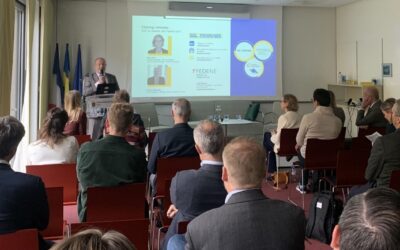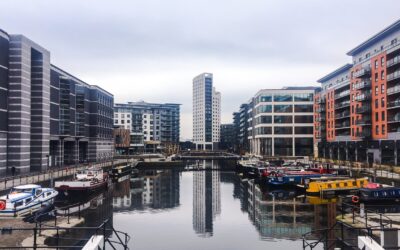New Heating Network in the Hauts-de-Seine department is set to warm 15,000 Homes by 2028 • New wastewater-powered heating network inaugurated in the Orléans region • Idex invests nearly €25 million in Épernay's new heating network • Read more about the developments in sustainable heating and cooling in this month's news update from France

A significant transition is underway in Chambéry as the Société de Distribution de Chaleur de Chambéry (SCDC) concludes its 36-year tenure in supplying heat to the city. The baton is now passed to Dalkia, entrusted with the role of district heating operator for the next 25 years. The newspaper Le Dauphine states that the primary objective of this handover is to accelerate environmental sustainability efforts of the city and reduce costs for users.
The decision to change management of the network was taken on Monday, December 18, as the city council approved the new public service delegation. The change in management is not without importance in the French market, as the network counts among the five largest heating networks in France. Developed in 1949, the Chambéry heating network spans 58 kilometers and has the capacity to heat approximately 27,500 homes. It has been under the management of the Société de Distribution de Chaleur de Chambéry (SCDC), a subsidiary of Engie Solutions, since 1987. From September 1st, Dalkia will take the reins of the network for the coming 25 years.
Read more in article from Le Moniteur
On January 15, the new heating network fueled by recovered wastewater from the Orléans-La Source wastewater treatment plant was put into service. Described as a success story for the reions sustainability efforts by newspapers La République and Le Parisien, the network supplies heat to eleven buildings, including 310 homes, a science faculty lecture building, and the University’s administrative offices. The network reuses water sourced from households and local businesses in the La Source and Saint-Cyr-en-Val districts, leveraging the waste heat from treated wastewater using a high-performance heat pump, extracting energy just before the water is released into the natural environment.
From a technical standpoint, the heat extracted from water, which maintains a temperature of approximately 15 degrees Celsius, is injected directly into the heating network through an intricate system of pipes spanning 5 km. This solution significantly reduces the reliance on gas for heating, with both economic and sustainable benefits. The project, spearheaded by Dalkia, comes at a total price tag of €5,205,525, with €1,913,862 in financial support from ADEME, the French Environment and Energy Management Agency, as part of the heat fund. Hailed as an “exemplary and innovative” initiative by Matthieu Schlesinger, deputy chairman of Orléans Métropole, and deemed “effective” by Serge Grouard, Chairman of Orléans Métropole and Mayor of Orléans, the project marks a significant step forward in energy transition for the region.
Read more in article from La Republique
Read more in article from La Parisien
On 19 December 2023, Idex signed the public service delegation contract for the heating network in Épernay. At the same moment, Idex presented their plans to invest nearly €25 million in the network, notably including a biomass heating plant on the site of the existing Mont Bernon facility, designed to supply nearly 4,600 homes. The heating network will also be modernised and extended from 3 km to 13 km, enabling the company to quadruple the number of subscribers.
Idex was selected as the provider for Épernay’s district heating network in November 2023, beating Engie’s bid with a supplied energy price cheaper than Engie’s offer, according to l’Union. As such, Idex will operate the network for 24 years from 1 January 2024, and will be responsible for producing, transporting, and distributing district heating. The energy will be produced from biomass.
Idex, which is already working in Reims and Châlons, will take over the reins of the Mont Bernon boiler plant during January 2024, has vowed to transform and expand the plant to accommodate a biomass boiler. The project is expected to prevent the emission of more than 9,700 tonnes of CO2 per year according to l’Union.
The new additions to the energy production plant will comprise two wood-fired boilers fueled by wood chips from local forests within a 100 km radius of the plant. L’Union outlines that as a special feature of the region, 10% of the wood used will come from vines.
Idex has stated that they will nevertheless keep the old boiler room and other existing equipment to be used as a back-up during peak energy consumption hours, for example during harsh winter months. They have furthermore expressed the intent to use biomethane for this purpose.
Read more in article from L’Union
To stay updated on news for sustainable heating and cooling, follow us on LinkedIn, and subscribe to our Newsletter.
Sweden is at the forefront of decentralised heat networks technology. Our aim for “Sustainable Heating & Cooling by Sweden” is to facilitate knowledge sharing between British, French and Swedish stakeholders and develop and encourage environmental and economic best practice.
To find out how we can help you and your organisation, please contact our London or Paris-based “SHC” teams. We can introduce you to leading consultants, suppliers of technology and services who will be pleased to share know-how of the development of sustainable heating & cooling solutions.


